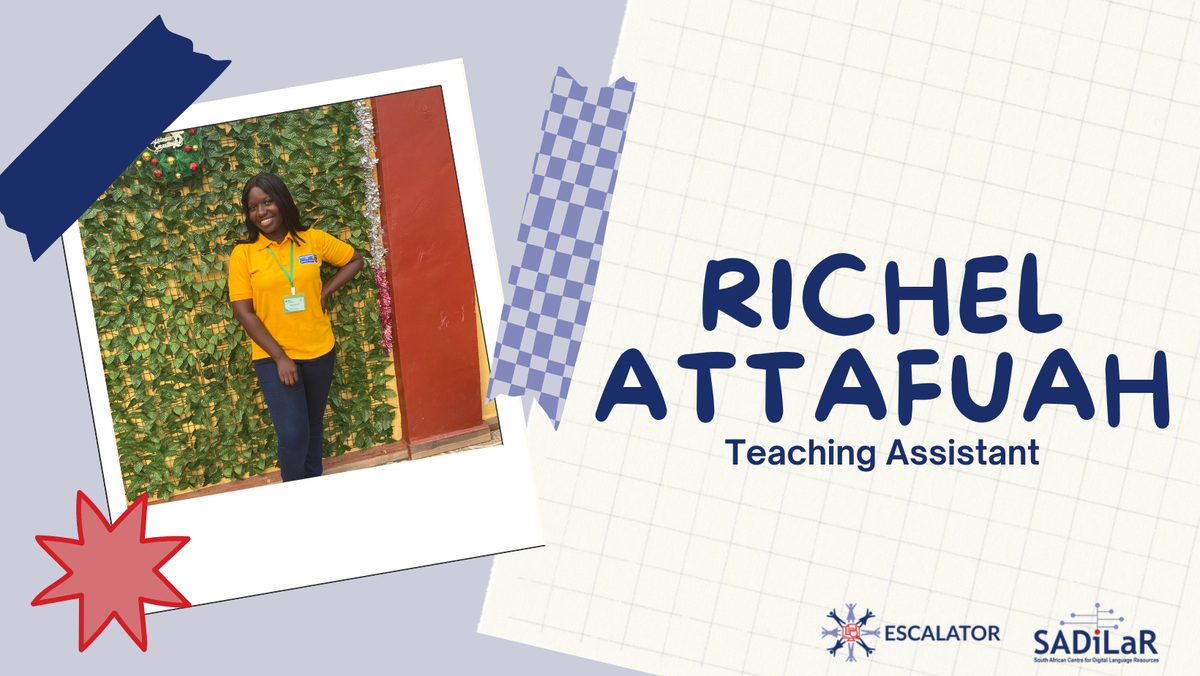Women in Digital and Computational Spaces: Meet Richel Attafuah

Today our spotlight shines on Richel Attafuah. Richel is a teaching assistant at the University of Ghana and a member of Women in Machine Learning & Data Science (WiMLDS).
In short
- Preferred name and surname: Richel Attafuah
- Affiliation (where do you work or study): University of Ghana
- Role: Teaching Assistant
- LinkedIn: https://www.linkedin.com/in/richel-attafuah-931b46228/
📽️ What is your all time favourite movie and what makes it so special?
The title of the movie is Annie. She was brave and confident. Even though she couldn’t read , she learnt to read and helped her friends in the end. She was really brave and beautiful. I love it. My all-time favourite 🥹
📚 Can you describe your background and your current role?
What line of work are you in?
Education. I’m a teaching assistant.
Give a short summary of what you do in this role
As a teaching assistant, I support faculty and students by assisting in course delivery, grading assessments, and offering guidance during office hours. I aid in course preparation and administrative tasks to ensure an enriching academic experience.
What did you study?
I studied statistics with mathematics
How did you get involved in the tech space?
My journey into the tech space began when I attended an event called Python Accra. Intrigued by the vibrant community and the fascinating discussions around technology, I decided to volunteer at the event. Through this experience, I immersed myself in various tech-related activities, gained valuable insights, and connected with like-minded individuals passionate about technology.
What software do you use on a daily basis in your job?
Python
How did you learn to use these tools?
Self-study
Which tool has the biggest impact on your ability to succeed at work?
VSCode
Do you think women are well represented in your line of work?
Yes we are fairly represented. We now get the same opportunity as they do. So it’s a work in progress.
🌱 Tell us more about your community of practice
Describe the purpose of this community from your point of view.
Solely to bridge the gap between tech and women and to stir up the desire of many women to enter the Tech space.
How did you get involved?
I attended our meeting during the Deep Learning Indaba and I decided to volunteer. It’s been a beautiful journey ever since.
Why do you find it useful to be a part of this community?
Being part of this community of WiMLDS provides valuable support, collaboration opportunities, and resources for professional development. It offers a platform to connect, learn, and contribute to initiatives aimed at bridging the gender gap in the tech industry. Being involved empowers me personally and enables me to contribute meaningfully to advancing women in tech.
Is your community accessible and welcoming to women? If so, how?
Yes, our community prioritizes accessibility and inclusivity for women in tech. We achieve this through open communication channels, tailored events and mentorship programs By providing a supportive environment and resources for personal and professional growth, we ensure that all women feel welcomed, valued, and empowered to participate and succeed in the tech industry.
How can other people become a part of this community?
To join our community, individuals can typically visit our website or social media platforms to learn about membership options, upcoming events, and how to get involved. We often provide information on how to register for membership, attend events, or participate in online forums or discussions. Additionally, interested individuals can reach out to community leaders or organizers directly for more information on joining and contributing to our community’s mission and activities. We welcome anyone who shares our values of diversity, inclusivity, and empowerment to become part of our community and contribute to our shared goals in the tech space.
What other communities of practice are you a part of?
Python Accra
💡 What advice do you have for women in Humanities and Social Sciences (HSS) eager to grow their computational skills?
For women in Humanities and Social Sciences (HSS) aiming to boost their computational skills, start with introductory courses in Python or R. Utilize online tutorials and coding platforms, collaborate with peers, and join communities focused on computational social science. Seek interdisciplinary projects and embrace a growth mindset, persistence, and mentorship for skill enhancement.